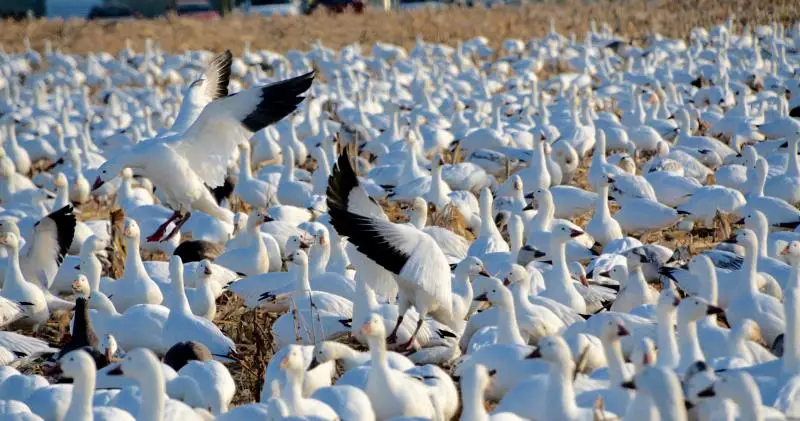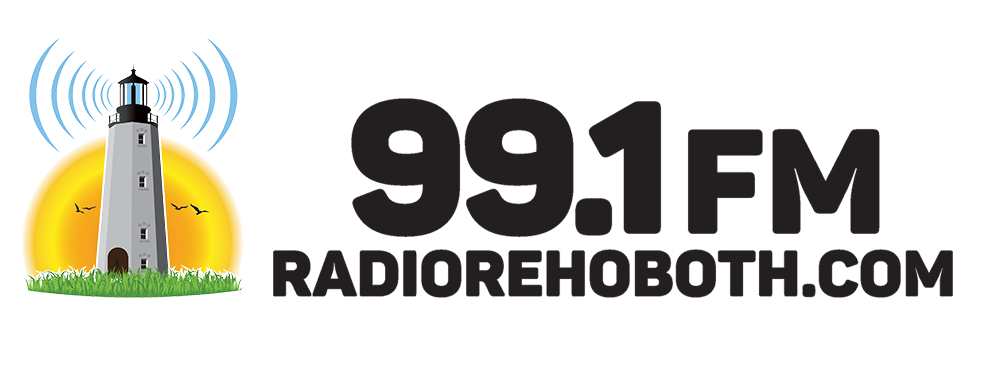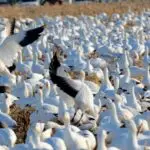-
 play_arrow
play_arrow
Radio Rehoboth
Snow geese found in Sussex test presumptive positive for avian influenza


Editor’s note: The following article has been modified from its original version to reflect updated information.
The Delaware Department of Natural Resources and Environmental Control, in conjunction with the Delaware Department of Agriculture, has reported snow geese found sick or dead Dec. 27 in coastal waters of Sussex County – including birds found at Prime Hook Beach – have tested presumptive positive for H5 avian influenza. Presumptive positive is a term used in the early days of the pandemic by the CDC related to the diagnostic testing process for a disease. A presumptive positive result is when a patient has tested positive by a state or local public health laboratory to infection by a pathogen but has not yet been confirmed by the CDC.
Detections of highly pathogenic avian influenza in the snow geese stricken in Sussex mark the Delmarva region’s first confirmation of HPAI in wild birds since May 2022, when the H5N1 virus was found through wildlife surveillance in black vultures in Harford County, Md. HPAI is known to be carried widely in North America by wild birds, especially waterfowl, raptors and vultures.
Waterfowl hunters and anyone coming across a dead or sick wild bird of any kind should take precautions. For more information about proper protocols upon coming in contact with a wild bird that may have contracted HPAI, go to the U.S. Department of Agriculture’s Animal and Plant Health Inspection Services website at aphis.usda.gov/sites/default/files/fsc_hpai_hunters.pdf. As waterfowl season continues in Delaware, DNREC officials said hunters should be cautious when handling harvests of ducks and geese in the field.
Delaware poultry growers are advised to continue following biosecurity protocols for HPAI. Commercial poultry producers should contact the company they grow for if they notice signs of the disease, while backyard flock owners seeing any indication of HPAI in their flock should contact the Delaware Poultry Health Hotline by emailing poultry.health@delaware.gov, or calling 302-698-4507, and provide the grower’s contact information, size of flock, location and concerns.
For more information on avian influenza, visit de.gov/poultry.
Go to Source:https://www.capegazette.com/article/snow-geese-found-sussex-test-presumptive-positive-avian-influenza/285405
Author:
Written by: RSS
Similar posts
Chart
Top popular

News Briefs 10/17/23
Board of Commissioners Workshop & Special Meeting – November 6

Six Sussex road projects considered in latest CTP
Knicks vs. Cavaliers prediction, odds, line, spread, time: 2023 NBA picks, Nov. 1 best bets from proven model
Tamar Braxton Says ‘Tamar 2.0’ Era Is More ‘Grown Up’ (Exclusive)
Copyright 2023 East Sussex Public Broadcasting, Inc.





